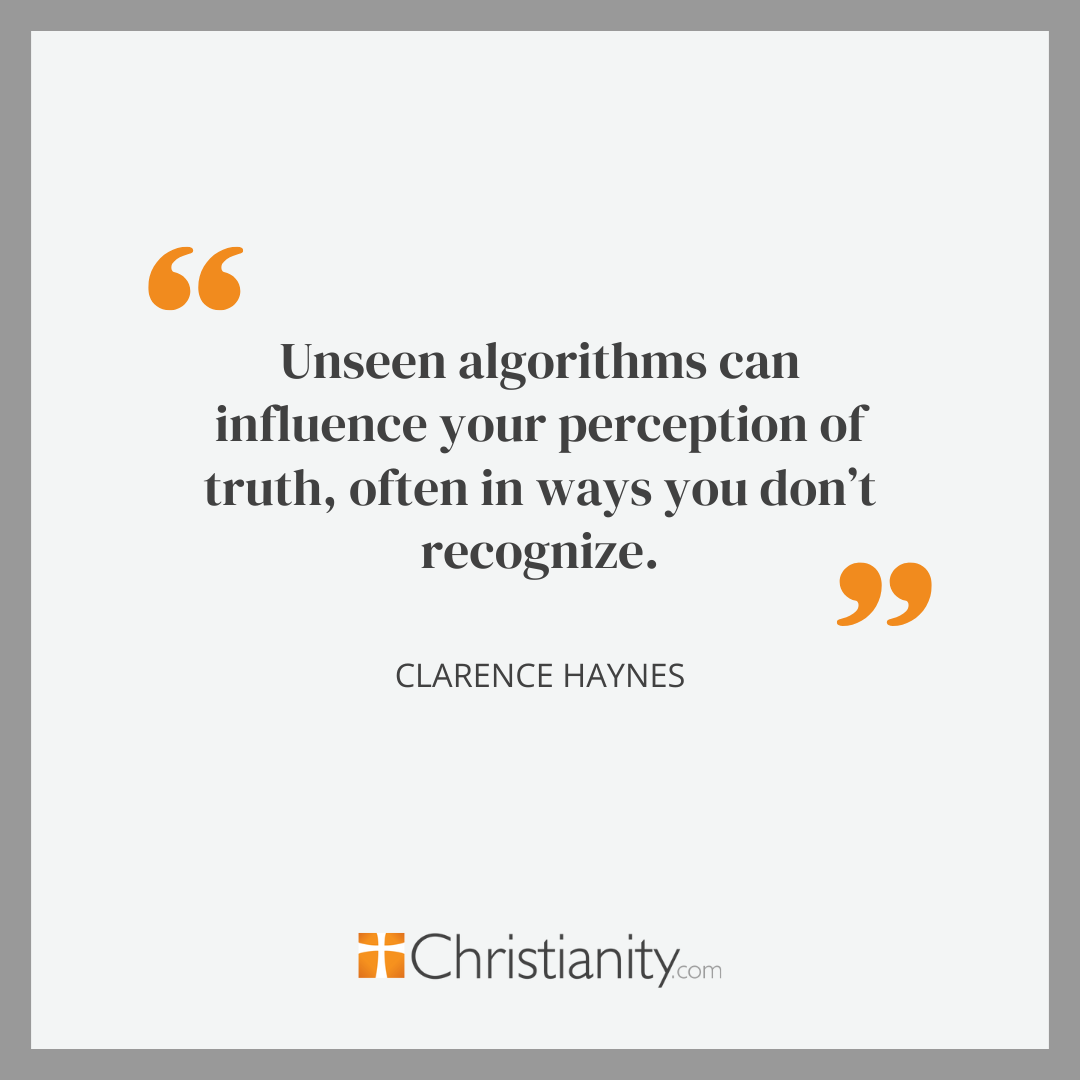Deciphering Truth in an Age of Algorithmic Influence

Deciphering Truth in an Age of Algorithmic Influence
If you remember the story of The Wizard of Oz, one of the most striking moments comes near the end of the story. After a long and treacherous journey, Dorothy and her friends finally get to meet the great and powerful Oz. Much to their surprise, Oz is not so great and powerful after all. What they discovered was that behind the curtain was not a mighty wizard, but a simple man pulling levers and magnifying his booming voice through a microphone. Everything that the mighty Oz represented was just an illusion created by someone they could not see.
Fast forward to today, and we’re living with a new version of Oz. This one doesn’t sit in Emerald City but in the palm of your hand. The man behind the curtain is no longer pulling levers because it’s an unseen algorithm. Just like the wizard’s booming voice, this algorithm creates illusions. It decides the posts you see, the stories that show up in your feed, and even the ads that seem to chase you around from site to site. You may think you’re scrolling freely, making your own choices, but someone, or rather something, is curating your experience.
This content feeds your emotions, and over time, it can even shape your worldview. Experts have been warning us about the powerful role social media algorithms play in shaping what we see, what we believe, and what we value. These complex systems track our behavior through every click, every like, and every share, and feed us increasingly tailored content. This process can amplify harmful messages, distort our perception of reality, and reinforce addictive scrolling habits that are hard to break.
Understanding these systems is vital for our spiritual health. These unseen algorithms can influence your perception of truth, often in ways you don’t recognize until much later. That’s why in this age of algorithmic influence, learning to discern truth is more critical than ever before.

What the Algorithm Assumes about You
One day, my wife got into her car and started driving. Because she had taken a certain route several times before, the GPS automatically assumed she was going to the church and programmed the route without her even asking. This is a perfect illustration of how the algorithm works. It is like an advanced tracking device. It tracks where you have been online and assumes that since this is where you have been, this is where you always want to go.
By design, once you click on one type of content, suddenly every other piece of related content will “mysteriously” appear in your feed. This is how people get drawn into rabbit holes of information, sometimes scrolling for hours on end. It’s worse if that information is false or misleading, you are getting sucked into a vacuum of untruths that influence how you think. In the worst-case scenarios, this steady diet of skewed information can even shape how you behave. This is how people can become “radicalized” in their thinking, because they fill their minds with content that is often slanted heavily in one direction. Here is what I want you to really think about today. If unseen algorithms are shaping what you see and believe, how can you, as a Christian, remain rooted in God’s truth rather than being discipled by digital voices?
3 Steps to Noble Character in a Noisy World
How do we fight back against something so powerful and pervasive? Thankfully, the Bible gives us a model to follow. When the Apostle Paul was preaching the gospel, he would often go into the synagogues and reason with the Jews, showing them from their own Scriptures that Jesus was the Messiah. In Acts 17, Paul goes to the city of Berea and does this very thing. But the response of the Bereans was different. Here’s what Luke wrote about them:
"Now the Berean Jews were of more noble character than those in Thessalonica, for they received the message with great eagerness and examined the Scriptures every day to see if what Paul said was true." - Acts 17:11
What made the Bereans noble was not their willingness to listen but their commitment to making sure what they heard was true. They recognized they had a role to play in verifying what they were hearing was accurate. This responsibility often stands in contrast to the way we consume content on social media. While we may be active in listening, we are passive in validating and verifying, often mindlessly scrolling and absorbing information without asking questions. When this happens, you have become a victim of the algorithm.
Step #1 - Check the source
You must consider who is sharing the information and why. Does this person have real expertise, or are they just espousing their own opinion? Are they simply appealing to your emotions, trying to provoke them, or are they really challenging you to think about a topic? If the content you are consuming is simply making you angry or frustrated, then that is how the algorithm shapes your point of view.
If you are going to be a digital Berean, then make sure you are fact-checking what you are hearing against the truth of Scripture and the character of Christ. I heard Pastor A.R. Bernard say, “You can be Biblical and not be Christlike.” Don’t just automatically give someone a pass because they are quoting the Bible. Make sure their actions, reactions, and calls to action are all in alignment with the character of Christ. If they don’t align, then maybe you need to stop listening.
Step #2 - Go beyond the headlines
Our culture has many angry people. It feels like outrage rules the day. Sadly, even many Christians are walking around in this state of outrage. The triggers of this are often the social media soundbites that come with shocking headlines designed to feed into your emotions. Many times, the full story is misrepresented because they are trying to fit a narrative. If you are going to decipher truth, then you must not fall victim to headlines. One simple thing you can do is read the full article or get more than one source of the story. This may seem like additional work, but it is necessary to protect yourself.
Step #3 - Go to the direct source
So many social media feeds quote what people say. However, it is so easy to take words out of context, and that is why you must go directly to the source. Don’t just take someone’s word for what a study concluded or what a politician said. Find the original study. Watch the full press conference. Read the actual document for yourself. This is the modern equivalent of the Bereans opening the scrolls for themselves to see if what they were being told was true.
Pull Back the Curtain on Digital Illusion
Let’s go back to where we started, with the Wizard of Oz. The man behind the curtain only had power because no one knew he was there. When Dorothy pulled back that curtain, the illusion was shattered. The algorithm is the same. Now that you know it’s there, constantly pulling levers to shape your experience, you can strip it of its power over you.
My friend, you don’t have to be a slave to the algorithm. You have a choice. You can choose to be a passive consumer, letting your mind be shaped by unseen forces, or you can choose to be an active, discerning, and wise digital Berean. The world is being discipled by algorithms every single day. Let us, the people of God, be a people who are discipled by the Word of God. Let us commit to seeking truth, curating our minds, and grounding ourselves in the unchanging reality of Christ in an age of powerful digital illusions.
Photo Credit; ©Pexels/Karolina Grabowska

He is the author of The Pursuit of Purpose, which helps readers understand how God leads them into his will, and the author of The Pursuit of Victory: How To Conquer Your Greatest Challenges and Win In Your Christian Life. Clarence is also committed to helping 10,000 people learn how to study the Bible and has released his first course, Bible Study Basics, to achieve that goal. To learn more about his ministry and resources, please visit clarencehaynes.com.


